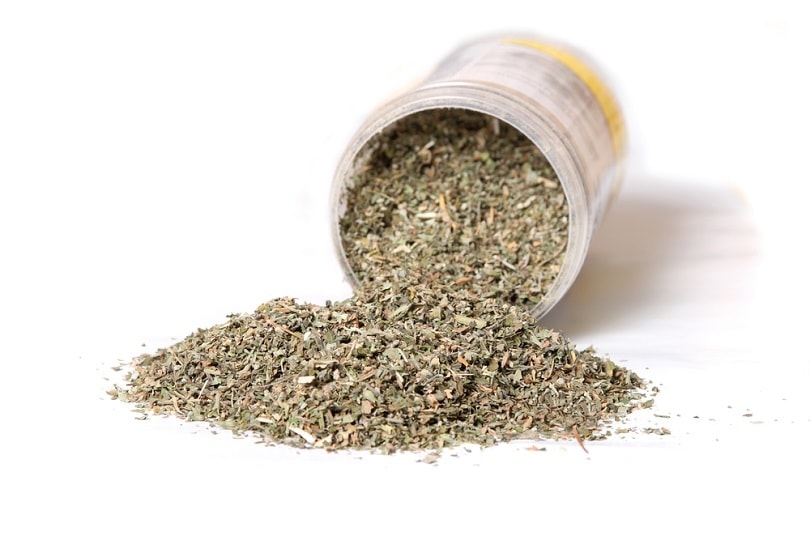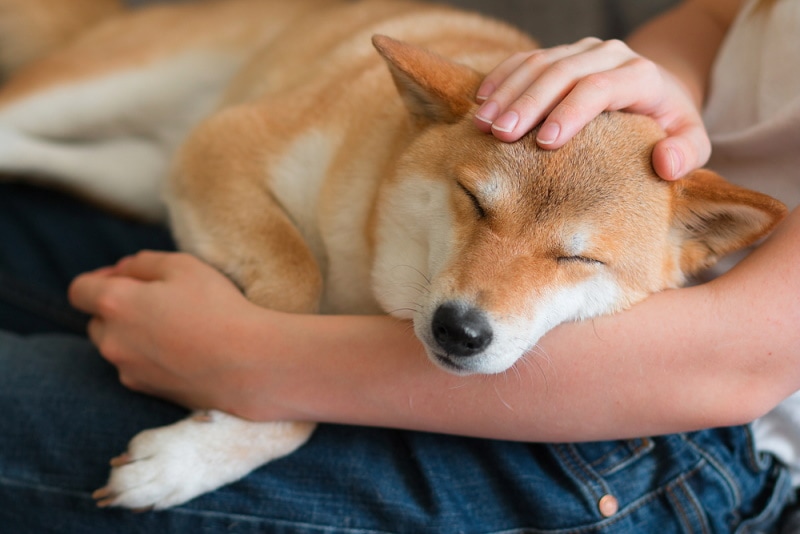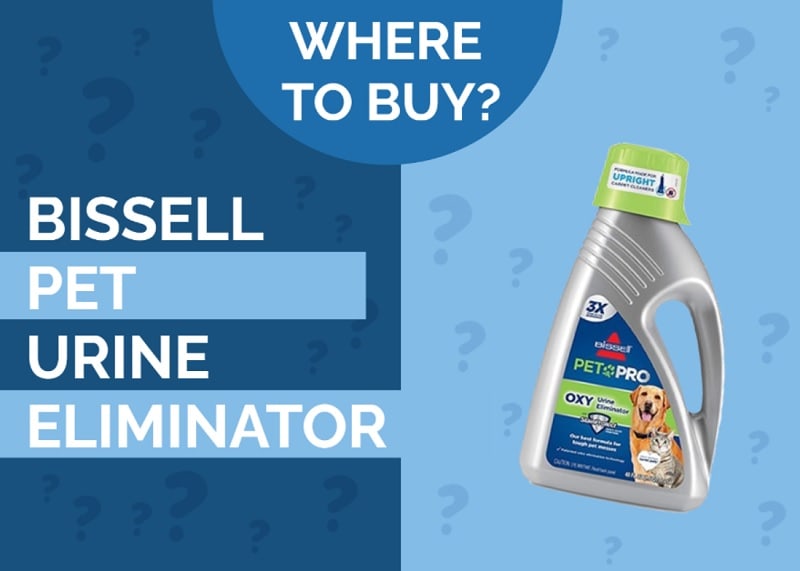Can Dogs Eat Catnip? Vet Approved Facts & Safety Guide

By Misty Layne
Updated on
Click to Skip Ahead
There’s nothing more fun than giving our kitties some catnip and watching them zoom around the house and run up the walls. This herb is definitely enjoyable for humans and felines alike! But does catnip only affect cats? What happens if you give a dog some?
It turns out that dogs can safely have catnip (at least in limited quantities), and while it doesn’t affect them the way it does our cats, it can affect them. Catnip is reported to have a few potential benefits for your canine, helping calm nerves and more. If you want to safely use catnip on your pup, here’s what you should know!

What Is Catnip?
Catnip (Nepeta cataria) is an herb that comes from the mint family. While catnip is native to Asia, the Middle East, and Europe, it’s been in America since the 18th century. The plant itself isn’t what makes your kitty go wild, though; it’s an oil found on catnip called nepetalactone. It’s thought that when your cat gets a whiff of nepetalactone, the oil binds to receptors in the nose which stimulate neurons going to the brain1. After those neurons hit the brain, it stimulates “happy receptors”, which then make the kitty “high”.
This oil also smells like pheromones, particularly sex hormones, which is why a cat will display behaviors such as relaxation and affection.

Dogs & Catnip
So, what happens when a dog has catnip? Well, for starters, the smell of catnip won’t affect canines, but eating it will. But unlike cats, who tend to go a little wild, catnip for dogs provides a mild sedative effect (which is why you don’t want to give it to your pup often). It also provides a few nutritional benefits.
Nutritional Benefits of Catnip
Catnip doesn’t contain a ton of nutritional benefits for canines, but it does have a few.
- Vitamin C
- Vitamin E
- Magnesium
- Flavonoids (phytonutrients)
Other Benefits
Then there’s the mild sedative effect most dogs will get after eating catnip (though not every dog will experience this). But what possible benefits could that offer other than a nice little nap? Quite a few, surprisingly!
Before we go any further, it’s always advisable to contact your vet first if your dog is suffering from any behavioral or health concerns before giving catnip.
If your pup is suffering from gastrointestinal issues, catnip is reported to be a possible solution. Whether your pet is nauseous, suffering indigestion, or even motion sickness, the effect of catnip could help it out (similarly to how mint tea can settle our stomachs). That’s not the only thing catnip is good for, though.
Catnip is also reported to be helpful for your dog if they are dealing with anxiety. Does your dog get super nervous about visiting the vet? Then giving them a bit of catnip about a half hour before the vet appointment may help calm them. Speak to your vet if your dog regularly suffers from anxiety, they may refer your dog to a behaviorist, and advise calming pheromones such as Adaptil or other anti-anxiety products.
Catnip may also aid dogs dealing with sleep problems due to its sedative effect. For example, if your dog has suddenly taken to wandering the house all night long, keeping everyone awake in turn, you could give your pet a bit of catnip before you all turn in for bed. There are lots of possible underlying causes for changes in a dog’s sleep pattern, including pain and Canine Cognitive Dysfunction. It is very important to have your dog examined by your vet before using catnip, to work out if there is an underlying cause that needs treatment.

How to Give Catnip to Your Canine Companion
First and foremost, it’s essential to remember that catnip isn’t a food that should be part of your dog’s daily diet. It also shouldn’t be used as a daily supplement. Instead, catnip should only be given to your pup occasionally when it’s experiencing stomach trouble, dealing with anxiety, or having sleep issues after consulting with your vet. When these things occur, you’re going to want to sprinkle just a bit of catnip (about ½ teaspoon) on your dog’s food. If your dog doesn’t eat it that way, you can also try sticking a few leaves in its water bowl.

Conclusion
Yes, dogs can have catnip! Both the dried and fresh versions are considered safe for dogs. However, as with many plants, if your dog eats a large quantity they are likely to suffer from gastrointestinal upset. Due to catnip’s potentially sedative effects on dogs, it may aid with anxiety, an upset stomach, and problems sleeping. Catnip isn’t something you want to give your dog often, so use it sparingly and always check with your vet before giving it, so they can make sure there are no contraindications.
Featured Image Credit: DuckShutter, Shutterstock











